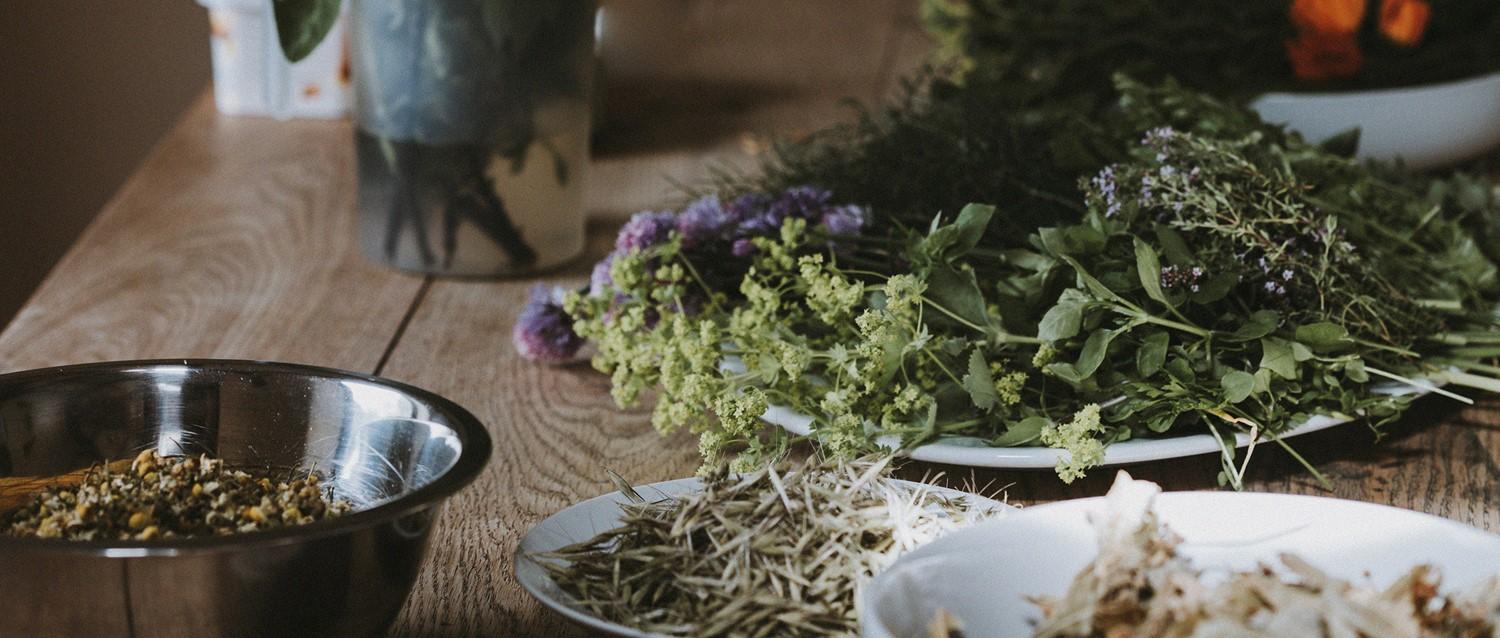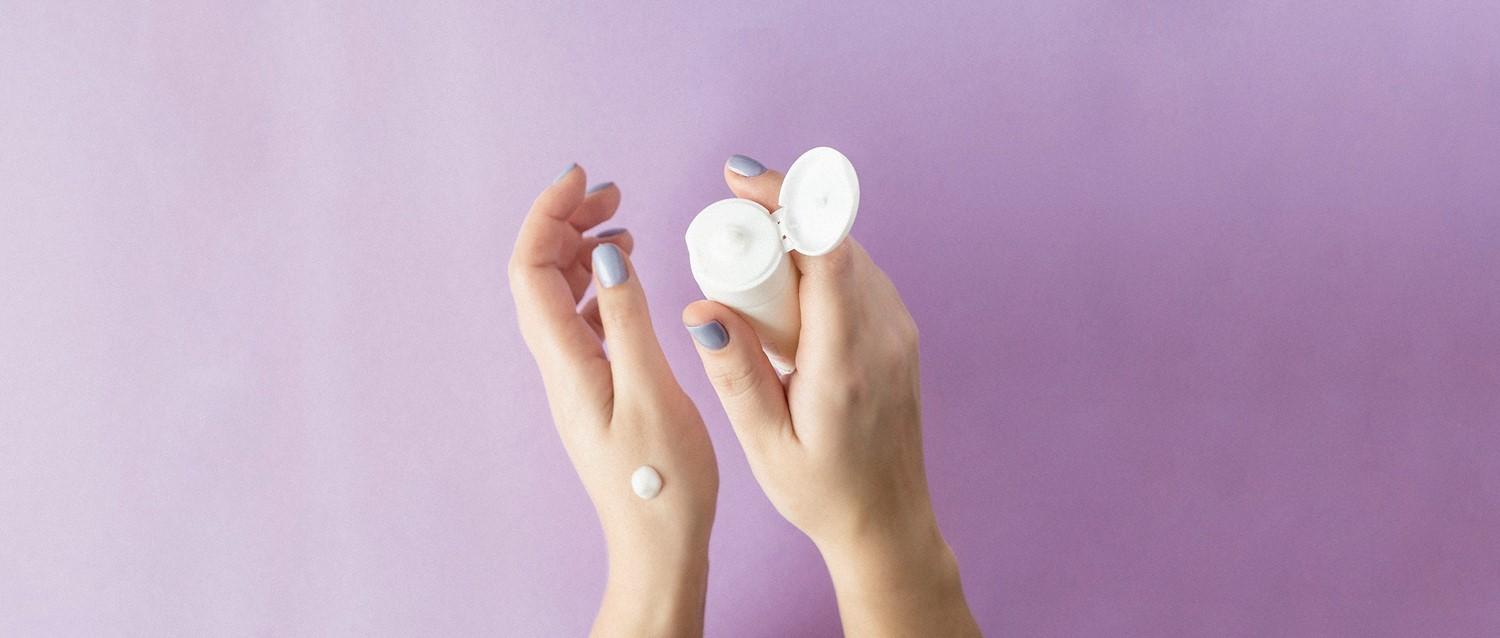
Does herbal medicine really work?
Peer reviewed by Dr Colin Tidy, MRCGPAuthored by Dr Sarah Jarvis MBE, FRCGPOriginally published 11 Feb 2019
Meets Patient’s editorial guidelines
- DownloadDownload
- Share
- Language
- Discussion
Has your doctor or dentist ever asked you what medicines you're taking? If so, have you told them the whole truth? Drug interactions can be dangerous, and you'd be mad to put yourself at risk. But what if you didn't realise you weren't giving them all the facts? All too often, I discover people are taking herbal medicine or herbal supplements - but they have no idea that they 'count' as medicines.
In this article:
In fact, while millions of people across the world take herbal medicine and supplements every day, many have no idea they can cause side-effects. When I explain to my patients that St John's wort can interact with up to 70% of all prescription drugs; or ginseng can cause dangerous fluctuations in blood-clotting levels if you're taking warfarin; or green tea supplements can interact with pseudoephedrine, taken for colds; or ginkgo biloba can interact with aspirin and warfarin; they're usually stunned.
Can honey help hay fever?
Continue reading below
Is herbal medicine safe?
I'm amazed how many of my patients believe that just because something is 'natural', it must be safe. Nightshade is 'natural', but it's also deadly.
Licensed drugs can't be given to the public without reams of evidence, including:
Whether the drug has a real effect on the condition it's used for (it's important to point out that no medicine works for everyone, but the manufacturers have to jump through lots of hoops relating to 'placebo-controlled' trials - do more people respond to their drug than an inactive pretend tablet - or 'active comparator' trials - does their drug have advantages over current medicines on the market).
Whether the benefits outweigh the risks.
How much of the drug is needed for best effect.
How the drug is manufactured.
The precise amount of the drug in the tablet.
How this is monitored and quality controlled.
In the UK, the MHRA (which regulates our medicines) has introduced a 'Traditional Herbal Registration (THR) scheme' which does answer some of these questions. Any THR-marked product must have been produced to a high standard, and the herbal medicines must contain exactly what it says on the packet. All herbal medicines sold in the UK should carry a THR marking on the packet. But there are still lots of gaping holes in the system.
Firstly, if you order herbal medicine over the internet, they may come from outside the UK, where the same regulations don't apply.
And more obvious still, to get this marking you don't actually have to prove your herbal medicines or herbal supplements work. You only have to show your product has been 'traditionally used' for at least 30 years to treat the condition you want to advertise it for.
Herbal medicines that doctors recommend
Some of the therapies I recommend regularly include:
Red clover
Most women suffer from hot flushes around the menopause and many are now worried about the small increased risk of breast cancer which comes with long-term HRT. Red clover isoflavone is a natural oestrogen-like compound. At a dose of 60-80 mg a day, it can help with hot flushes, and it has a good safety record.
St John's wort
This herbal remedy is as good as many medicines available on prescription for treating depression. But a couple of warnings:
It can interact with other medicines (occasionally seriously).
If you're considering changing from a prescribed antidepressant to St John's wort, do talk with your GP first.
I virtually never prescribe antidepressants without also advising talking therapy. Depression can ruin your life - but counselling is a better long-term solution than tablets of any sort.
GOPO for osteoarthritis
Made from the rosehip, GOPO is a herbal medicine marketed for relief of pain and stiffness for patients with osteoarthritis. Several randomised controlled trials (the gold standard of research) suggest it can reduce pain in patients with osteoarthritis, as well as improving stiffness and general well-being.
Importantly, people with knee and hip osteoarthritis taking GOPO needed significantly fewer strong painkillers compared to people taking placebo.
Glucosamine for osteoarthritis
You can buy glucosamine from a health food store or pharmacy. Taken at a dose of about 1500 mg a day, it may slow down the progression of osteoarthritis. The evidence for benefit isn't very strong and some is inconsistent, but it does have a good safety record so even with a small improvement any benefit is likely to outweigh the risks.
Fish oil - for just about everything!
The Food Standards Agency recommends that we should all be eating at least one portion of oily fish a day to protect our hearts - which gives us about 500 mg a day of the 'long chain' omega-3 fatty acids found in fish oils. If you've had a heart attack, it may be worth increasing that to 1 g a day. Admittedly, recent studies suggest the evidence isn't strong enough to recommend that doctors prescribe supplements for people who've had heart attacks, so you can't get it on the NHS. But population-based studies suggest it certainly won't do any harm and may help.
Unfortunately, most plant-based versions of omega 3 just don't contain enough of the active ingredient to have the same effect.
Omega 3 has also been shown to help with the symptoms of the inflammatory joint problem rheumatoid arthritis. There hasn't been enough research to show the same benefits for osteoarthritis, but it's certainly worth a try if you have rheumatoid arthritis - and it's one of the few supplements I routinely recommend.
Olive oil - outside and in
By now, we all know about the benefits for your heart of eating more olive oil and less butter and animal fat. But olive oil is great for softening earwax, too. A small amount of olive oil applied two to three times a day for four to five days may even soften the wax enough for your body to get rid of it naturally, avoiding the need for syringing.
Alternative therapies - a word of caution
Alternative therapies can be very tempting. All too often, they offer you the world - or at least a guarantee of success. But do be aware that many of these treatments aren't governed by the same strict regulations as medicines and treatments your doctor can prescribe. So their claims may be based on limited evidence, to say the least.
Call me cynical, but bloodletting was 'traditionally' used to treat every conceivable malady (including blood loss from stab wounds) for centuries back in the mists of time. Anyone for leeches?
Patient picks for Medicine information

Treatment and medication
Can your skin really get addicted to steroid creams?
'Woman’s steroid cream addiction made her look like she'd been skinned alive.' 'My kids were scared.' 'My skin was covered in scales and shedding all over the house.' These headlines - from Metro, The Sun and The Daily Mail respectively - allude in typically lurid style to the symptoms of topical steroid withdrawal. Each article tells the story of an eczema sufferer whose skin became 'addicted' to their medication.
by Abi Millar

Treatment and medication
Practical ways to manage your medicines at home
Research indicates that many people do not take their medications as recommended, and it can be especially difficult for those who struggle with memory or have multiple medications to remember. Here we look at the tools that can help make taking medication easier.
by Amberley Davis
Continue reading below
Article history
The information on this page is peer reviewed by qualified clinicians.
11 Feb 2019 | Originally published
Authored by:
Dr Sarah Jarvis MBE, FRCGPPeer reviewed by
Dr Colin Tidy, MRCGP

Ask, share, connect.
Browse discussions, ask questions, and share experiences across hundreds of health topics.

Feeling unwell?
Assess your symptoms online for free
Sign up to the Patient newsletter
Your weekly dose of clear, trustworthy health advice - written to help you feel informed, confident and in control.
By subscribing you accept our Privacy Policy. You can unsubscribe at any time. We never sell your data.